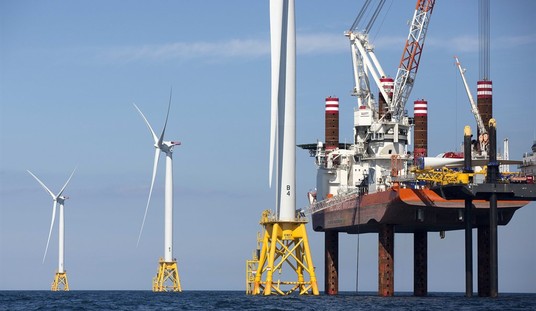It’s Walid Phares, one of five people named by Trump a few days ago as part of his foreign-policy team and probably the best known of the bunch. Is that because more prominent GOP foreign policy experts won’t sign on with Trump, as some within their ranks have suggested, or is it a deliberate choice Trump has made to emphasize that he’s making a clean break with the Republican establishment on FP too? As Buckley once almost said, better to have your foreign policy run by the first thousand names out of the phone book than the faculty of Harvard — especially when the “faculty” was mostly in favor of invading Iraq. Consider this another facet of the central mystery of Trump’s campaign: Would he really govern as a populist or would he try to fill the holes in his knowledge of policy by bringing in the same familiar names who’ve been shaping Republican foreign policy for decades? You won’t know until you elect him. Or, maybe, you’ll find out when he clinches the nomination and some of those more prominent GOP experts are forced to face the fact that he’s now the only game in town.
The key bit from Phares comes at a minute into the audio below, when he’s asked whether, like Trump, he favors torturing terrorists. I oppose torture, says Phares, but support enhanced interrogation. As for Trump’s own preferences:
Phares defended Trump’s repeated statements on torture not as an actual policy, but as “a reaction to a very complex and difficult and challenging situation.” Trump is calling for torture “because we are in a political season,” he said, but in the White House “he’s going to be tasking experts to answer that question, and I’m not sure that the experts are going to recommend any form of torture.”…
On CNN Tuesday, [Trump] referred to waterboarding as “your minimal form of torture” and told NBC’s Today “you could expand the laws more than waterboarding to get the information from these people.” He has said that he would favor techniques “a hell of a lot worse” than waterboarding. He has said the United States must keep up with ISIS, which is “chopping off heads.” He has repeatedly used the word “torture” while advocating it.
Two questions. First, would Trump follow his advisors’ recommendations if they opposed torture? Phares seems to think so, but when Trump was pressed last week on why he hadn’t announced a foreign-policy team yet, he said, “[M]y primary consultant is myself and I have a good instinct for this stuff.” His willingness to get rough with jihadis is one of the strongest elements of his appeal to Jacksonians. Reversing himself on that as president wouldn’t quite reach the degree of betrayal that abandoning mass deportation or ruling out a ban on Muslims entering the country would, but it’d be significant — and Phares seems convinced that he will. When was the last time a presidential candidate’s foreign policy advisor was actually reduced to arguing “well, he probably doesn’t mean it” when asked about a core part of his boss’s program?
The other question, related to the first, is this: Does Phares know that Trump’s support for torture goes beyond intelligence-gathering? To hear him talk here, you’d think this was a straightforward question of whether torture, or enhanced interrogation, produces better information than non-coercive interrogation does. That’s not how Trump looks at it, though. His view is that it does work — but even if it doesn’t, it’s worth doing anyway. He favors torture as punishment, an end in itself, not just a means to an end of spoiling terror plots. (And he has plenty of popular support for his stance, as the last link demonstrates.) The unasked follow-up question for Phares should have been how he expects Trump would react if he and the rest of the foreign policy team advised him against torturing jihadis on grounds that the intel produced simply isn’t very reliable. Trump might well turn around and say, “So?” This is a guy, after all, who was willing to assure the country at a televised debate that the military would obey his orders even if they’re illegal. What does Phares do then?
There’s simply no way to predict if Trump’s more dramatic populist flourishes are panders designed to get him through the primaries, to be later abandoned as necessary, or if he’s serious about implementing them — or, alternately, if he simply doesn’t know what he thinks from one day to the next, which is how we ended up with him calling for the borders to be closed and then walking that back in the span of about two hours yesterday. He told Bloomberg News last night that unpredictability on foreign policy is a virtue for a president since it keeps the enemy off-balance and may earn him some grudging respect as a “strong horse.” Right, but the hitch is that unpredictability during a campaign leaves voters wondering how the hell you’d actually govern if they hand you power, which is especially dicey when that power comes with a nuclear arsenal. Remember, at times during the campaign Trump has sounded isolationist; then, at the last Republican debate, he called for sending 20-30,000 troops into battle against ISIS. Good luck rolling the dice on that if you’re a Trump supporter. The only seemingly sure thing about Trump’s foreign policy, I think, given his bearishness on NATO and his cordial relations with Putin is that Russia would end up with much greater influence over Europe than it has now. At least Trump’s foreign-policy team should end up backing him on that one.








Join the conversation as a VIP Member